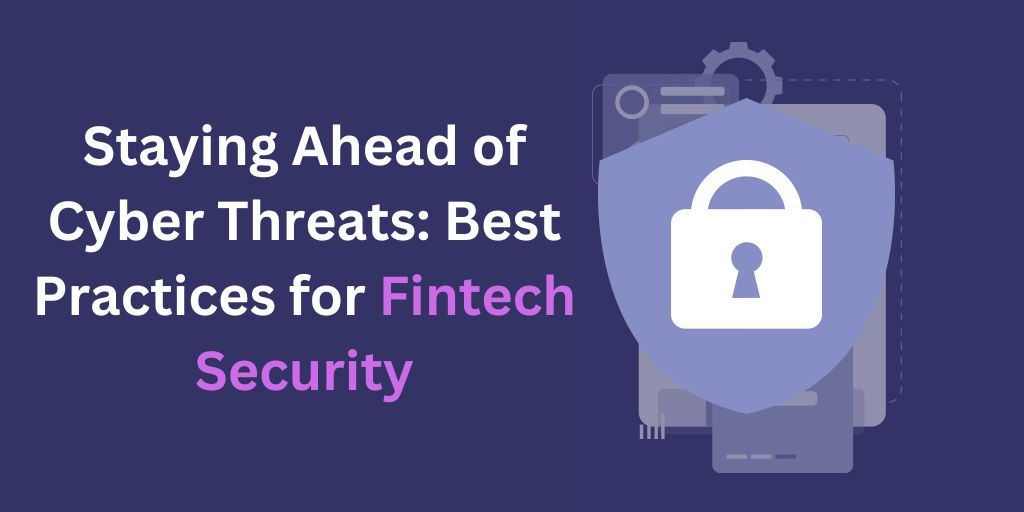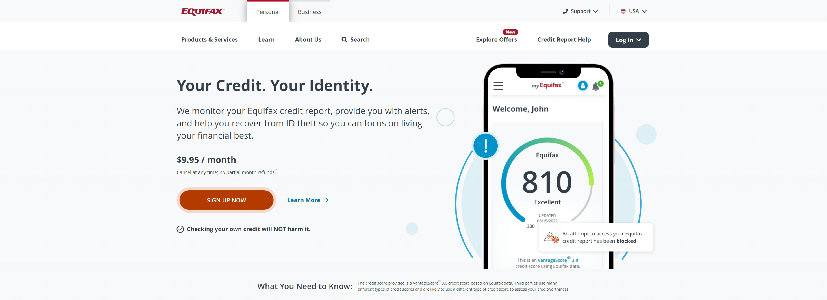Staying Ahead of Cyber Threats: Best Practices for Fintech Security
As the world becomes increasingly digital, the financial technology (fintech) industry has seen a surge in popularity. However, with great technological advances comes an even greater need for cybersecurity. Fintech companies, like any other organization, are not immune to cyber threats, and the consequences of a successful attack can be devastating. That’s why it’s more important than ever to stay ahead of cyber threats and implement best practices for fintech security.
Now, I know what you’re thinking. Cybersecurity is boring. It’s complicated. It’s something that only IT professionals and hackers care about. But trust me, in today’s world, everyone needs to be concerned about cybersecurity. With cyber-attacks becoming more sophisticated and frequent, it’s no longer a matter of if your fintech company will be targeted, but when.

But don’t worry, I’m not here to scare you. In fact, the good news is that there are many best practices you can implement to protect your fintech company from cyber threats. By being proactive and staying ahead of cyber threats, you can not only protect your company’s data and reputation but also gain a competitive advantage in the fintech industry.
In this blog, we’ll dive into the different types of cyber threats facing the fintech industry, the best practices you can implement to protect your fintech company, and the regulatory requirements you need to be aware of. We’ll also take a look at emerging trends in fintech security and what the future of cybersecurity might hold. So, buckle up and get ready to become a fintech cybersecurity expert!
Understanding Cyber Threats
The fintech industry has been at the forefront of the digital revolution in finance, providing innovative financial services and solutions to individuals and businesses. However, with the rapid growth of fintech, cyber threats have also increased, posing significant risks to the security of financial systems and data. Below you’ll explore the types of cyber threats that fintech companies face, provide real-life examples of successful cyber attacks, and examine the consequences of these attacks.
Types of Cyber Threats in Fintech Industry:
Phishing Attacks
Phishing attacks are one of the most common forms of cyber threats. In this type of attack, hackers send fraudulent emails, texts, or social media messages, posing as legitimate entities to obtain sensitive information, such as login credentials or financial data.
Malware
Malware is malicious software that is designed to damage, disrupt or gain unauthorized access to computer systems or networks. Hackers can use malware to steal financial data or take control of the system.
Distributed Denial of Service (DDoS) Attacks
A DDoS attack involves overwhelming a website or network with a flood of traffic, causing it to crash. Hackers use this attack to disrupt the services of a fintech company and make it unavailable for legitimate users.
Real-life Examples of Successful Cyber Attacks
Capital One

In 2019, Capital One, a US-based financial services company, suffered a data breach that exposed the personal and financial data of over 100 million customers. The hacker was able to exploit a vulnerability in the company’s firewall, which allowed them to access sensitive data, including credit card applications and Social Security numbers.
Equifax

In 2017, Equifax, a credit reporting agency, suffered a massive data breach that affected 143 million customers. The hackers exploited a vulnerability in the company’s web application to gain access to sensitive data, including names, addresses, birth dates, and Social Security numbers.
Consequences of Cyber Threats in Fintech Industry
Financial Losses
A successful cyber attack can result in significant financial losses for fintech companies, including lost revenue, legal fees, and damages.
Damage to Reputation
Cyber attacks can also damage the reputation of fintech companies, leading to a loss of trust among customers and partners.
Legal Consequences
Fintech companies may face legal consequences, including fines and lawsuits if they fail to protect the personal and financial data of their customers.
Best Practices for Fintech Security
The fintech industry is constantly evolving, and with the growing number of cyber threats, it’s essential to implement strong security measures to protect financial systems and data. In this article, we will explore some best practices for fintech security, including the use of encryption, firewalls, and antivirus software, multi-factor authentication, regular software updates and patch management, employee training and awareness, cloud security and backup, third-party risk management, and incident response and disaster recovery planning.
Use of Encryption, Firewalls, and Antivirus Software
Fintech companies must use encryption to protect sensitive data in transit and at rest. Encryption ensures that data is secure, even if it is intercepted by hackers. Firewalls and antivirus software help to prevent unauthorized access to systems and protect against malware and other types of attacks.
Multi-factor Authentication and Strong Passwords
Multi-factor authentication provides an extra layer of security by requiring users to provide additional authentication factors, such as a one-time passcode, in addition to their username and password. Strong passwords that are complex and difficult to guess can also help prevent unauthorized access.
Regular Software Updates and Patch Management
Regular software updates and patch management are critical to maintaining the security of fintech systems. Updates help to fix vulnerabilities and weaknesses in software and prevent attackers from exploiting them.
Employee Training and Awareness
Employees are often the weakest link in cybersecurity, so it’s crucial to train and educate them on best practices for security. This includes providing regular training on cybersecurity risks, policies, and procedures.
Cloud Security and Backup
Many fintech companies use cloud-based solutions for storage and processing, which can be a potential target for cyber attacks. Cloud security measures, such as access controls, data encryption, and regular monitoring, can help prevent unauthorized access. Regular backups of data also help to ensure that data can be recovered in the event of a cyber attack or other data loss.
Third-party Risk Management
Fintech companies often work with third-party providers, such as payment processors, software vendors, or other service providers. It’s essential to ensure that these providers also have strong security measures in place to protect against cyber threats.
Incident Response and Disaster Recovery Planning
Despite strong security measures, cyber attacks may still occur. It’s important to have an incident response plan in place to quickly respond to and mitigate the effects of an attack. Disaster recovery planning helps to ensure that systems can be restored in the event of a catastrophic event.
Regulatory Compliance
Overview of regulatory requirements for fintech security
Regulatory compliance is an essential aspect of fintech security. The fintech industry is subject to various regulatory requirements, which aim to protect the confidentiality, integrity, and availability of financial systems and data. Compliance with these requirements helps to ensure that fintech companies are operating in a secure and trustworthy manner.
Examples of regulations and standards applicable to fintech security
Examples of regulations and standards applicable to fintech data security include the General Data Protection Regulation (GDPR), the Payment Card Industry Data Security Standard (PCI DSS), and the Cybersecurity Information Sharing Act (CISA). These regulations and standards set requirements for data protection, encryption, access controls, incident response, and other security measures.
Importance of compliance with regulatory requirements
Compliance with regulatory requirements is essential for fintech companies, as failure to comply can result in fines, reputational damage, and legal action. Compliance also helps to build trust and confidence in the fintech industry and demonstrate a commitment to security and customer protection.
Emerging Trends in Fintech Security
Artificial intelligence and machine learning for cybersecurity
Artificial intelligence and machine learning can help fintech companies to detect and prevent cyber attacks by analyzing large amounts of data and identifying patterns that indicate potential threats. This technology can also be used to improve user authentication and identify potential fraud.
Blockchain technology and its application in fintech security
Blockchain technology provides a secure and decentralized platform for transactions and data storage, which can help to prevent cyber attacks and ensure the integrity of financial systems and data.
Quantum computing and its potential impact on cybersecurity
Quantum computing has the potential to revolutionize the fintech industry by enabling faster and more complex data processing. However, it also presents new challenges for cybersecurity, as traditional encryption methods may no longer be effective against quantum-based attacks.
Conclusion
In conclusion, fintech security is a critical aspect of the financial industry, and it requires constant vigilance and adoption of best practices. This article has covered the importance of regulatory compliance and the emerging trends in fintech security, including artificial intelligence and machine learning, blockchain technology, and quantum computing.
It’s essential for fintech companies to adopt best practices for security, such as encryption, multi-factor authentication, regular software updates, and employee training. This can help to prevent cyber attacks and ensure the security and integrity of financial systems and data.
In closing, in the process of fintech software development, you should take the necessary steps to protect their business and customers by implementing strong security measures and keeping up-to-date with emerging trends in fintech security. By doing so, fintech companies can build trust and confidence in their customers, partners, and regulators and contribute to a more secure and trustworthy fintech industry.

Himanshu is a digital marketing expert at Peerbits having a proven track record of delivering successful marketing campaigns for small and large businesses. He has huge expertise in strategic planning, brand development, content marketing, social media management, and e-commerce optimization. He is skilled at managing cross-functional teams, building strong relationships with clients, and staying up-to-date on the latest digital marketing trends and techniques. In his free time, he enjoys playing basketball, traveling, and trying out new restaurants in his city.